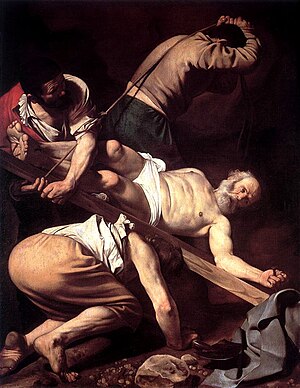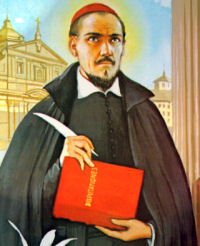At the Last Supper, on the night when He was betrayed, our Saviour instituted the eucharistic sacrifice of His Body and Blood. He did this in order to perpetuate the sacrifice of the Cross throughout the centuries until He should come again, and so to entrust to His beloved spouse, the Church, a memorial of His death and resurrection: a sacrament of love, a sign of unity, a bond of charity, a paschal banquet in which Christ is eaten, the mind is filled with grace, and a pledge of future glory is given to us.
What can be gleaned from this? Stuff like Christ instituted the Eucharist. None of this "evolving worship service" garbage that seems to be popular
among certain RCIA programs.
Or how about the Mass as a sacrifice? Or that Christ is eaten? I wonder what the folks scandalized by Mysterium Fidei were thinking when that language was included. We know from prior posts how scandalized Robert MacAffee Brown was when Paul VI wrote that particular encyclical.
I'd go so far as to say that maybe 75% of the heresies involving the Eucharist that claim "the spirit of Vatican II" could be refuted by this one paragraph.
The Church, therefore, earnestly desires that Christ's faithful, when present at this mystery of faith, should not be there as strangers or silent spectators; on the contrary, through a good understanding of the rites and prayers they should take part in the sacred action conscious of what they are doing, with devotion and full collaboration. They should be instructed by God's word and be nourished at the table of the Lord's body; they should give thanks to God; by offering the Immaculate Victim, not only through the hands of the priest, but also with him, they should learn also to offer themselves; through Christ the Mediator, they should be drawn day by day into ever more perfect union with God and with each other, so that finally God may be all in all.
I just heard a tremendous "Aha!" from some readers. There it is! We shouldn't be silent spectators! No more TLM!
This is the standard McBrienish argument. In other words, one with no foundation. Such an argument presupposes that those attending the TLM are silent spectators. We already know
from prior statements in SC that participation doesn't mean "doing things." In fact, contemplation is superior to action. If anything, people these days are completely violative of this section by having no idea what they are doing, if we are to believe the surveys on what Catholics believe.
Oh, and if you're looking for the footnotes to this, check out Cyril of Alexandria's Commentary on John
here, especially chapters XI and XII.
For this reason the sacred Council, having in mind those Masses which are celebrated with the assistance of the faithful, especially on Sundays and feasts of obligation, has made the following decrees in order that the sacrifice of the Mass, even in the ritual forms of its celebration, may become pastorally efficacious to the fullest degree.
"Pastorally efficacious." I'm not sure what that means. I'm assuming that it's to encourage the above-mentioned dispositions.
The rite of the Mass is to be revised in such a way that the intrinsic nature and purpose of its several parts, as also the connection between them, may be more clearly manifested, and that devout and active participation by the faithful may be more easily achieved.
A revision. Not an entirely new rite of Mass. One can debate the success of the latter sentence as well, since it seems that fewer and fewer Catholics believe (or even know) the dogmas associated with the Mass. We are participating at the wrong level, I guess.
For this purpose the rites are to be simplified, due care being taken to preserve their substance; elements which, with the passage of time, came to be duplicated, or were added with but little advantage, are now to be discarded; other elements which have suffered injury through accidents of history are now to be restored to the vigor which they had in the days of the holy Fathers, as may seem useful or necessary.
So they are looking for a liturgy that's more like what the Fathers were using. Maybe no Second Confiteor and that sort of thing. Have you ever been to a liturgy that hasn't been all that "reformed"? The Eastern ones, for example.
Are they more like the TLM or the Pauline Mass?
The treasures of the bible are to be opened up more lavishly, so that richer fare may be provided for the faithful at the table of God's word. In this way a more representative portion of the holy scriptures will be read to the people in the course of a prescribed number of years.
We did this, hence the new cycle of readings. I'm not sure how well this worked out, since we seem to have more Scripture but don't really know much of it very well.
By means of the homily the mysteries of the faith and the guiding principles of the Christian life are expounded from the sacred text, during the course of the liturgical year; the homily, therefore, is to be highly esteemed as part of the liturgy itself; in fact, at those Masses which are celebrated with the assistance of the people on Sundays and feasts of obligation, it should not be omitted except for a serious reason.
See, here's one of those things that really bothers me. All this talk about how important the homily is, yet I hear all these stories about random layperson or whoever delivering it.
Especially on Sundays and feasts of obligation there is to be restored, after the Gospel and the homily, "the common prayer" or "the prayer of the faithful." By this prayer, in which the people are to take part, intercession will be made for holy Church, for the civil authorities, for those oppressed by various needs, for all mankind, and for the salvation of the entire world.
Someone more qualified than me can answer this one. What's the difference between these and the intercessory prayers in the TLM or Divine Liturgy?
In Masses which are celebrated with the people, a suitable place may be allotted to their mother tongue. This is to apply in the first place to the readings and "the common prayer," but also, as local conditions may warrant, to those parts which pertain to the people, according to tho norm laid down in Art. 36 of this Constitution.
Aha! again. See, the mother tongue is supposed to be used! To the dustbin with that Latin stuff!
Let's take this in context. First, all it really mentions are the readings and intercessory prayers. Then there's a reference to some vague "local conditions." Even those "conditions," though, are subject to the norm of Article 36.
Remember that one? It's the one that said for Latin to be preserved as the language of the liturgy.
So what does the Constitution say? Latin is the norm. The vernacular is the exception. What do we have? The exact opposite.
Nevertheless steps should be taken so that the faithful may also be able to say or to sing together in Latin those parts of the Ordinary of the Mass which pertain to them.
Whoa. Probably don't hear this one much, huh? The faithful are actually supposed to be learning Latin. Can you imagine the upheaval if this was implemented these days? People are going insane over having to say "And with your Spirit." Et cum spiritu tuo would make heads explode.
And wherever a more extended use of the mother tongue within the Mass appears desirable, the regulation laid down in Art. 40 of this Constitution is to be observed.
If you don't recall Article 40, it's discussed in our entry
here. It's the one that mentions things like "carefully and prudently" considering any liturgical adaptations with "circumspection," including special reference to the mission field.
As mentioned earlier, there weren't all that many objections to liturgical adaptations in this area. Even Bishop Castro de Mayer admitted as much.
Now, does a place like the USA really fall into this kind of category? Did most of the world back in the 1960s? I'm not sure, but it strikes me as very weird that all these adaptations going on meet the criteria of Art. 36 or Art. 40.
That more perfect form of participation in the Mass whereby the faithful, after the priest's communion, receive the Lord's body from the same sacrifice, is strongly commended.
Is this about private Masses? Anybody know?
The dogmatic principles which were laid down by the Council of Trent remaining intact, communion under both kinds may be granted when the bishops think fit, not only to clerics and religious, but also to the laity, in cases to be determined by the Apostolic See, as, for instance, to the newly ordained in the Mass of their sacred ordination, to the newly professed in the Mass of their religious profession, and to the newly baptized in the Mass which follows their baptism.
The reference to Trent probably shocks the modernist conscience, but it's worth taking a look at, I think.
It's in Session XXI. Some readers might be surprised to see the Tridentine statement that communion under both species is something the Church can change. Other readers might be surprised to see this:
[I]f any one saith, that the holy Catholic Church was not induced, by just causes and reasons, to communicate, under the species of bread only, laymen, and also clerics when not consecrating; let him be be anathema.
Think about that the next time you hear someone ramble on about how communion under one species was the product of some kind of clerical snobbery or pride.
The other thing about this paragraph is that it mentions the occasion of communion under both kinds as being isolated special events, rather than every single Sunday.
The two parts which, in a certain sense, go to make up the Mass, namely, the liturgy of the word and the eucharistic liturgy, are so closely connected with each other that they form but one single act of worship. Accordingly this sacred Synod strongly urges pastors of souls that, when instructing the faithful, they insistently teach them to take their part in the entire Mass, especially on Sundays and feasts of obligation.
Of course.
Concelebration, whereby the unity of the priesthood is appropriately manifested, has remained in use to this day in the Church both in the east and in the west. For this reason it has seemed good to the Council to extend permission for concelebration to the following cases:
1.
a) on the Thursday of the Lord's Supper, not only at the Mass of the Chrism, but also at the evening Mass.
b) at Masses during councils, bishops' conferences, and synods;
c) at the Mass for the blessing of an abbot.
2. Also, with permission of the ordinary, to whom it belongs to decide whether concelebration is opportune:
a) at conventual Mass, and at the principle Mass in churches when the needs of the faithful do not require that all priests available should celebrate individually;
b) at Masses celebrated at any kind of priests' meetings, whether the priests be secular clergy or religious.
2.
1. The regulation, however, of the discipline of concelebration in the diocese pertains to the bishop.
2. Nevertheless, each priest shall always retain his right to celebrate Mass individually, though not at the same time in the same church as a concelebrated Mass, nor on Thursday of the Lord's Supper.
A new rite for concelebration is to be drawn up and inserted into the Pontifical and into the Roman Missal.
So there is a new rite for concelebration in the West. Can someone explain why? Here's the thing I don't get. Why did we need one? The East does a lot of stuff that we don't do in the West and vice versa. Was this really so big of a deal? It admits to being an innovation. However, as we learned from Article 23:
Finally, there must be no innovations unless the good of the Church genuinely and certainly requires them; and care must be taken that any new forms adopted should in some way grow organically from forms already existing.
So what's the deal?
More to come.




.jpg)












